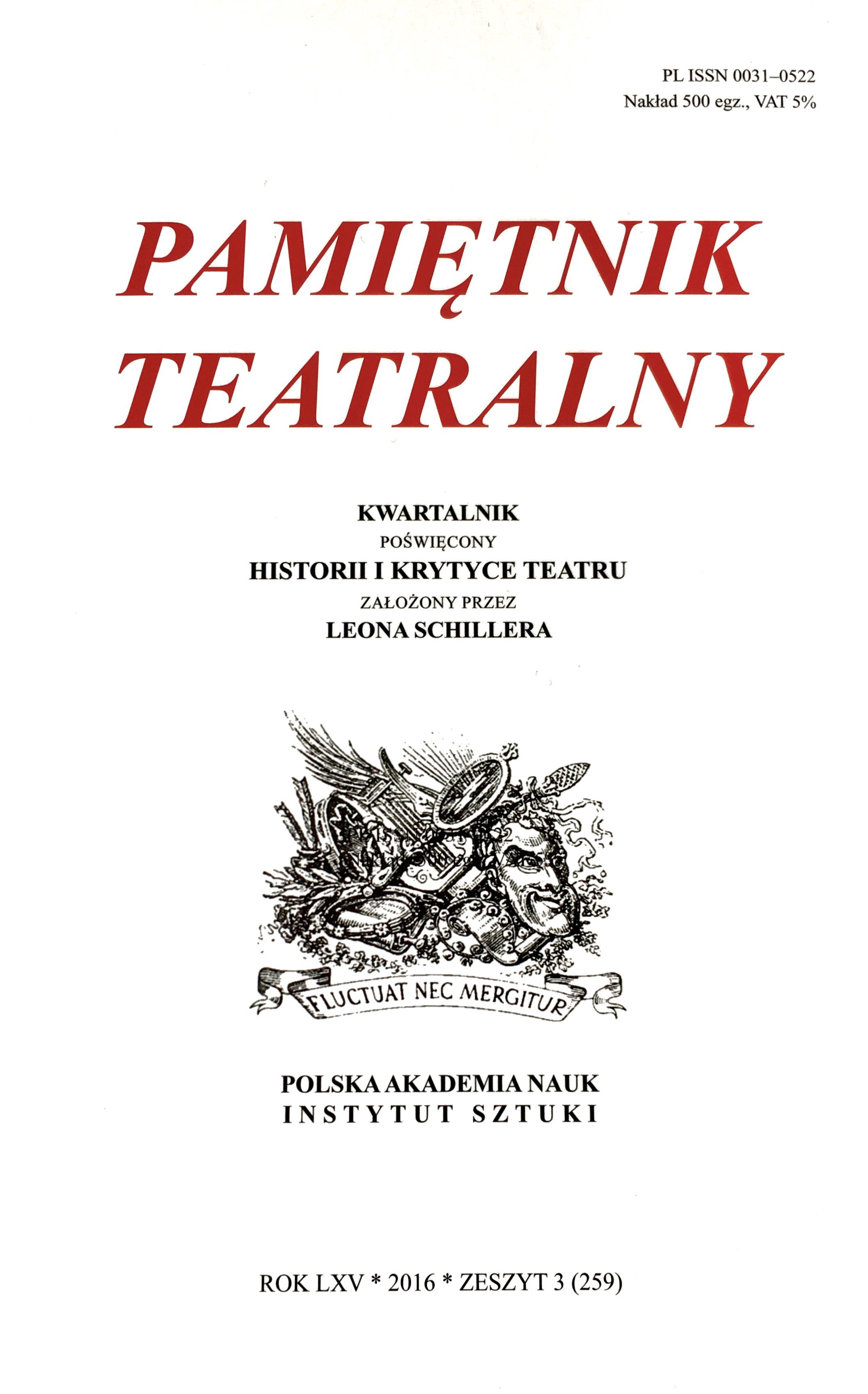„Wymawia się Szekspir”
“It Is Pronounced Szekspir”
For Master William on the Quadricentennial of His Demise
Author(s): Jarosław KomorowskiSubject(s): Theatre, Dance, Performing Arts
Published by: Instytut Sztuki Polskiej Akademii Nauk
Keywords: Shakespeare;translating culture;Szekspir;
Summary/Abstract: Wojciech Bogusławski prefaced the first publication of his translation of Hamlet, included in Volume Four of his Dzieła dramatyczne (‘Dramatic Pieces’), with an introduction titled “Shakespeare,” where he volunteered in a footnote: “It is pronounced Szekspir [Shek-speer].” Within the period of almost one hundred years, the spelling of the Stratford playwright’s name in Poland vacillated between these two extremes: “Shakespeare,” or the older version of “Shakespear,” on the one hand, and some form of Polish phonetic spelling, the most widespread—and at the end, prevalent—being “Szekspir,” on the other. Polish prints and manuscripts from 1765–1849 contain at least 40 (say: forty) spelling variants ranging from English and pseudo-English to more or less phonetic versions, with numerous hybrid solutions in between. The present list, published as such for the first time, is arranged chronologically; each instance of the first usage is quoted, and a succinct commentary is supplied whenever necessary. Most of the variants are attempts by Polish authors and editors at making the name of Hamlet’s author more familiar in Polish. The list is potentially incomplete, however, since other versions might crop up in future research.
Journal: Pamiętnik Teatralny
- Issue Year: 259/2016
- Issue No: 3
- Page Range: 5-24
- Page Count: 20
- Language: Polish

